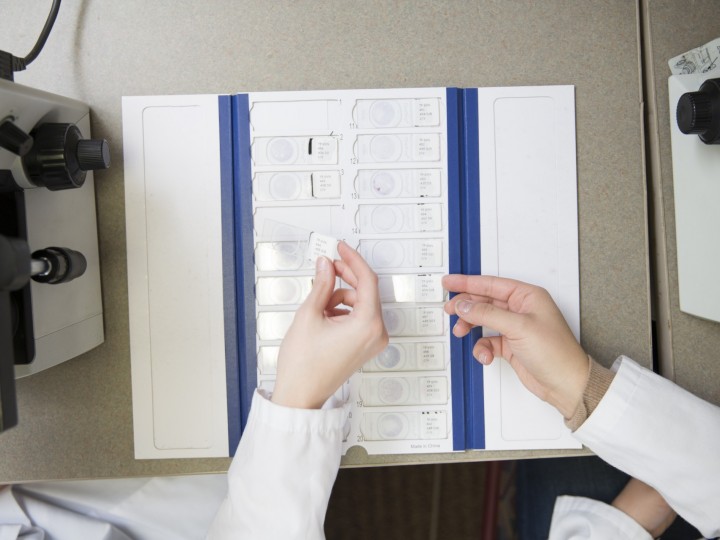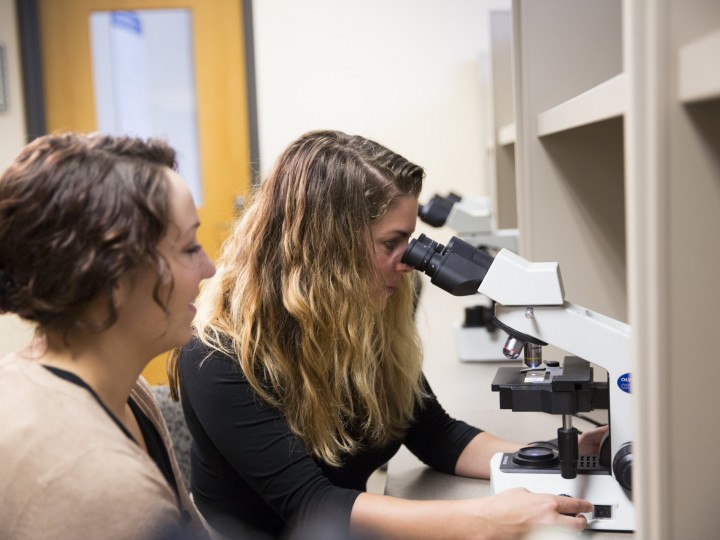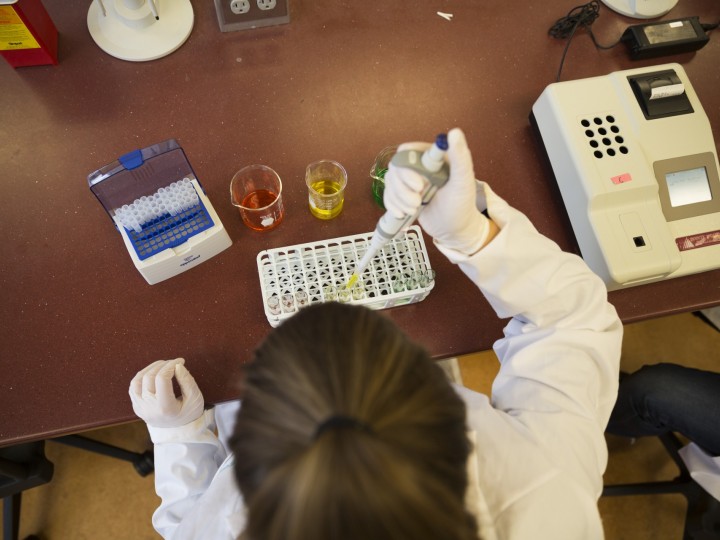Our biotechnology degree provides you with a strong foundation in basic and clinical sciences to prepare you for graduate programs and exciting biotechnology jobs. As a biotechnology major, you’ll join a thriving community of peers, faculty and alumni committed to studying and finding cures for diseases.
If you’re like most students curious about our program, you’re probably wondering, “What is biotechnology?” Well, being a biotechnology major at ACPHS is about becoming a well-rounded graduate who studies biochemical and physiological functions, anatomical structures, epidemiology and pharmacology to maintain and promote the health of others.
Tailor your educational experience to your career goals by pairing your biotechnology degree with either our clinical laboratory sciences or cytotechnology and molecular cytology master’s degree as part of a dual degree program. Earn your Bachelor of Biotechnology degree and your master’s degree in just five years —saving yourself time and money.

Those seeking to immediately enter the workforce are well qualified to obtain positions in laboratory research and the biotechnology industry.

Each of your advanced classes will be complemented by laboratory instruction, in which you’ll apply lessons to solve medical mysteries and learn about diseases and infections that affect millions of people around the world.
You’ll be guided throughout your college journey by highly experienced and renowned faculty mentors who bring their years of experience into the classroom to create an engaging and thought-provoking learning environment.

When you graduate, you’ll be qualified for positions in the biotechnology industry in roles such as sales, research and technical support. Many of our biotechnology majors are accepted into prestigious graduate programs to study nursing or optometry.
Because of the wide variety of biotechnology careers possible after graduation, salaries can vary greatly. For example, biotechnology jobs pay an annual salary of $55,000 while physician’s assistants with a master’s degree earn a salary of $121,500, according to the U.S. Bureau of Labor Statistics.
The job outlook also varies: Biotechnology jobs are expected to grow by 7% and employment for physician assistants is predicted to grow by 31%. Whichever career path you choose, having the foundation of a biotechnology degree from ACPHS will set you up to succeed every day of your professional life.

Your first two years in the biotechnology degree program will involve a combination of basic sciences, humanities and social sciences to help you develop as a well-rounded student before beginning the professional stage of the program.
Your third and fourth years will introduce you to specialized topics such as clinical microbiology, biochemistry, immunohematology and molecular diagnostics. Each of these courses will be supplemented with a lab in which you’ll get hands-on experience with the tools and devices used every day in biotechnology jobs.
Associate Professor
nicole.shakerley@acphs.edu
518-694-7281
Albany, NY 12208
admissions@acphs.edu
518-694-7221

